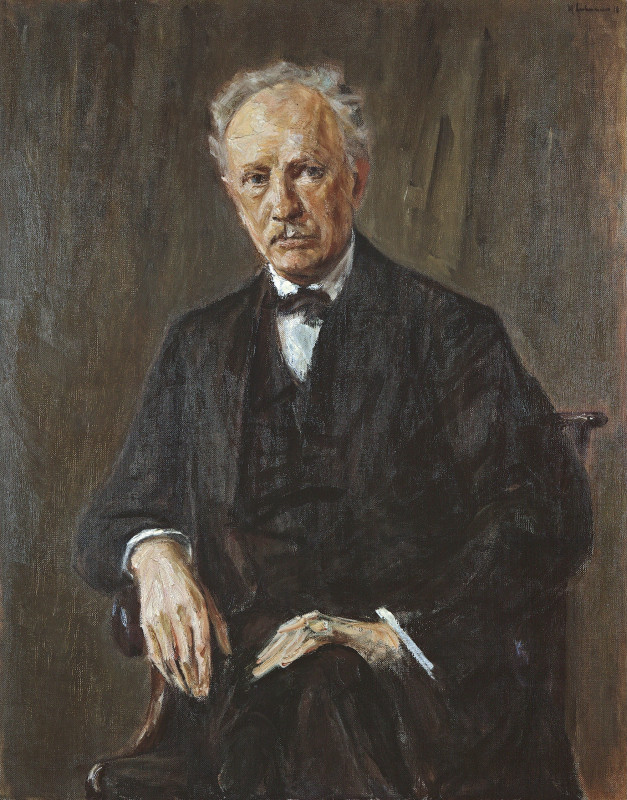Рихард Штраус: Цитаты на английском языке
Recollections and Reflections
Quotation made in an article published in 1914. Strauss had refused to sign the Manifesto of German artists and intellectuals supporting the German role in the war. Other signatories included Strauss' friends and colleagues, such as Max Reinhardt, Richard Dehmel, Max Liebermann, Engelbert Humperdink and Felix Wiengartner. The original article quoting Strauss was by Richard Specht, and is quoted by Romain Rolland in his diary entry, found on page 160 of Richard Strauss and Romain Rolland, edited by Rollo Myers, Calder and boyars, London, 1989.
Other sources
“When you think you have reached the limits of prestissimo, go twice as fast.”
1948 Today, I should like to ammend this as follows: Go twice as slowly - addressed to conductors of Mozart
Recollections and Reflections
19th June 1949, in Willi Schuh, Strauss the early years, 1982, Cambridge University Press, page xiii.
Other sources
Whilst composing Also Sprach Zarthustra, Strauss made this joke about the Bavaria weather to his friend, the conductor Max von Schillings. Quoted in Kurt Wilhelm, Richard Strauss - an intimate portrait, page 73.
Other sources
On Criticism (page 21-2) (1908).
Recollections and Reflections
Quotes from Stefan Zweigs's posthumous memoire, The World of Yesterday. Zweig worked with Strauss closely on the opera The Silent Woman in the period 1931-1934 and got to know him well.
Other sources
“My wife, my child, my music, Nature and the sun; they are my happiness.”
written on the sketches for his Domestic Symphony. Charles Youmans, Mahler and Strauss in Dialogue, Indiana University press (2016), found on page 60.
Other sources
Letter to Hans Von Bulow, 15th January 1890, in Schuh and Trenner, Hans von Bulow and Richard Strauss: Correspondence, in English Boosey and Hawkes 1955. Von Bulow had asked for metronome markings from Strauss for Don Juan. [Italics Strauss]
Other sources
Recollections of my youth and years of apprenticeship, page 140. In November 1892, Strauss had set off for an eight month journey to Greece and Egypt for convalesence from a severe lung ailment.
Recollections and Reflections
Recollections and Reflections
“It is better to conduct with the ear instead of with the arm: the rest follows automatically.”
On conducting classical masterpieces. (p44-56).
Recollections and Reflections
“More like a sacrilege du printemps.”
The first quote was made to Stravinsky after he had shown Strauss some of his works in Paris, 1914. The second quote an overheard joke of Strauss later reported to Stravinsky. Found in Kurt Wilhelm, Richard Strauss - an intimate portrait. Thames and Hudson, London, 1898. (Translated from original 1984 German edition by Mary Whittard), page 142.
Other sources
“I ask myself why I have actually survived once more and been called back to life.”
In late fall of 1948, Willi Schuh visited Strauss after an operation at a Clinic in Lausanne. This was a comment made by Strauss. From It will be alright on the night: Richard Streauss through quotes and anecdotes. Ed Alexander Witeschnick, Neff Press, Vienna (1983), page 187.
Other sources
On composing and conducting (page 39-40) (1929).
Recollections and Reflections
In America with Richard Strauss. Elisabeth Schumann’s Travel Diary (14th October to 31st December 1921). Elisabeth Schumann was a soprano who worked with Strauss in the 1920s and 1930s. He dedicated his Brentano Lieder to her.
Other sources
“Long live the politico-satrical-parodistic opera!”
Letter to Hugo von Hoffmannsthal, 5 June 1916. They had been discussing the new first act of Ariadne auf Naxos. A Working Friendhip: The correspondence between Richard Strauss and Hugo von Hoffmanstahl, Vienna House, New York (1961). Page 251.
Other sources
“Please start from the Bruch violin concerto again!”
Whilst rehearsing the Alpine Symphony, referring to the theme in which he quotes and extends the theme from the slow movement of the violin concerto by Max Bruch. The quote is reported in Kurt Wilhelm, Richard Strauss - an intimate portrait. Thames and Hudson, London, 1989, page 40. The theme's major appearence is in C major just after rehearsal mark 80 ("At the summit"), played by horns in unison:
Other sources
On Johann Strauss, page 77. Originally written in 1925.
Recollections and Reflections
Recollections and Reflections
Gustav Mahler, page 78. Originally written for a volume dedicated to Mahler edited by Paul Stephan, Munich 1910.
Recollections and Reflections
Diary entry, shortly after the death of Gustav Mahler (1911). Quoted in Oxford University Press, Grove music online: Strauss, Richard, §7: Instrumental works (written by Bryan Gilliam and Charles Youmans).
Other sources
